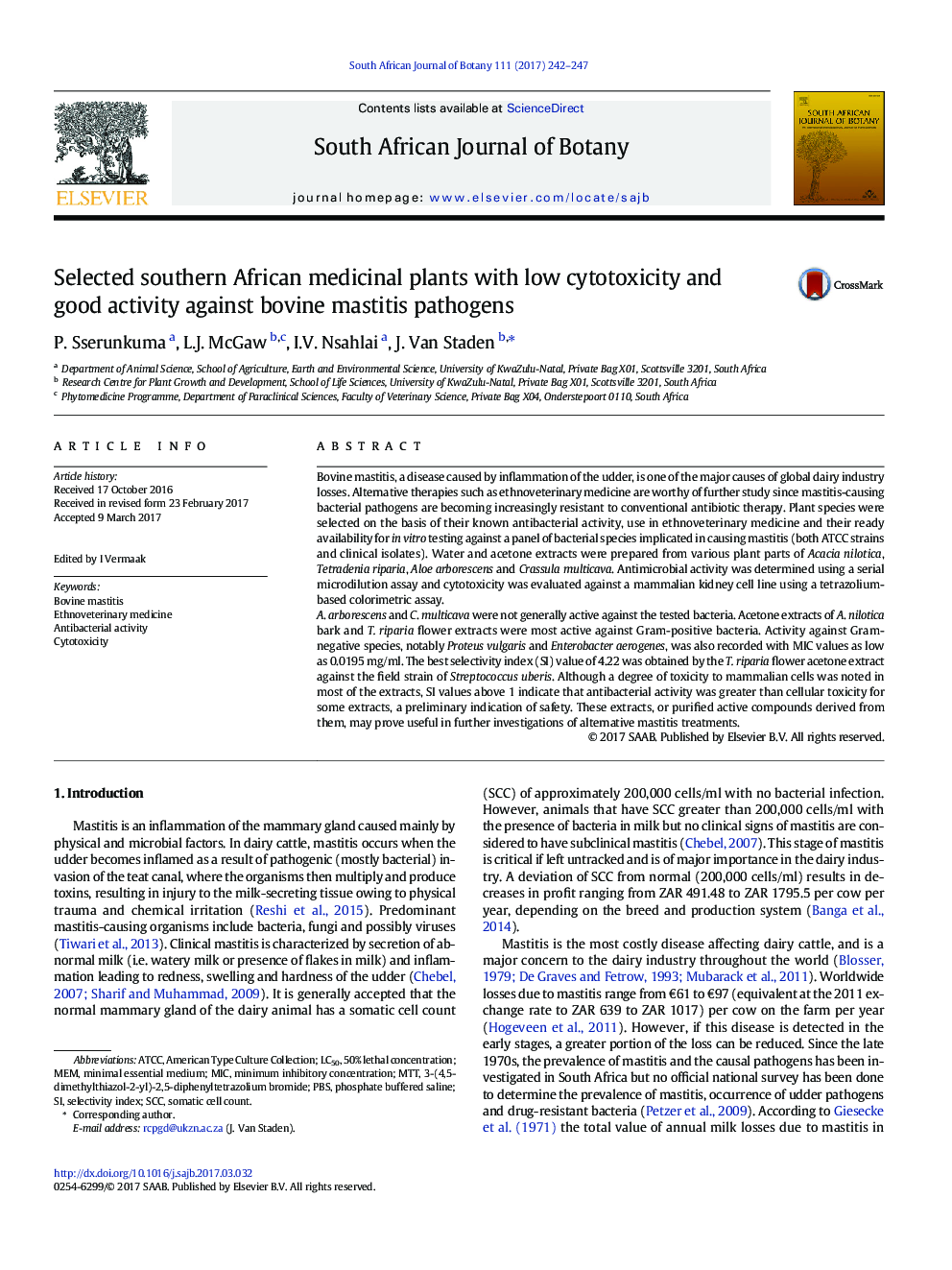| Article ID | Journal | Published Year | Pages | File Type |
|---|---|---|---|---|
| 5762966 | South African Journal of Botany | 2017 | 6 Pages |
Abstract
A. arborescens and C. multicava were not generally active against the tested bacteria. Acetone extracts of A. nilotica bark and T. riparia flower extracts were most active against Gram-positive bacteria. Activity against Gram-negative species, notably Proteus vulgaris and Enterobacter aerogenes, was also recorded with MIC values as low as 0.0195Â mg/ml. The best selectivity index (SI) value of 4.22 was obtained by the T. riparia flower acetone extract against the field strain of Streptococcus uberis. Although a degree of toxicity to mammalian cells was noted in most of the extracts, SI values above 1 indicate that antibacterial activity was greater than cellular toxicity for some extracts, a preliminary indication of safety. These extracts, or purified active compounds derived from them, may prove useful in further investigations of alternative mastitis treatments.
Keywords
PBSATCCLC50SCCMIC3-(4,5-dimethylthiazol-2-yl)-2,5-diphenyltetrazolium bromide50% lethal concentrationMTTSomatic cell countMinimum inhibitory concentrationminimal essential mediumCytotoxicityselectivity indexPhosphate buffered salineAntibacterial activityBovine mastitisMEMAmerican Type Culture CollectionEthnoveterinary medicine
Related Topics
Life Sciences
Agricultural and Biological Sciences
Agronomy and Crop Science
Authors
P. Sserunkuma, L.J. McGaw, I.V. Nsahlai, J. Van Staden,
